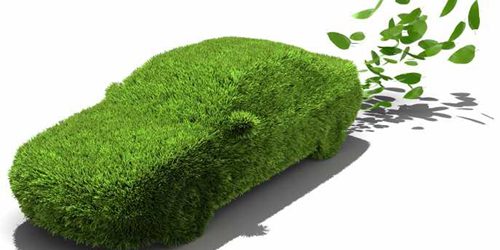 Hybrid owners place loyalty on short term savings when shopping for their next car.
Hybrid owners place loyalty on short term savings when shopping for their next car.
Recently pundits for NPR’s Marketplace Sustainability Desk announced a marked downtrend in hybrid vehicle purchases among green car owners who opt to return to standard combustion cars.
Citing a survey from auto consultants, R.L. Polk, Marketplace’s discussion focused on findings demonstrating that only 35% of hybrid owners remain loyal to hybrids in spite of rising fuel rates.
Why do almost two thirds of hybrid car owners go back to standard combustion engines? There’s no mystery here. Hybrids now face actual competition from new traditional models which guzzle less gas, sipping their way through 30 – 40 miles per gallon.
Adding to consumer frustration, “Consumer Reports magazine, which calculates its own fuel economy stats, noted that its Toyota Prius hybrid test car got 44 miles a gallon in real world driving, not the city/highway rating of 55 mpg that the government reports.” Hybrid-makers may have generated a consumer backlash by over-promising on fuel performance.
Folks shopping for their next car will remember mixed test results and feel no loyalty to inflated statistics. A traditional car with competitive mileage and a friendly price may prove difficult to resist in a tough economy.
And while hybrid cars offer an average of 3 to 5 mpg improvement over newer standard engines, Carseek.com points out that hybrids cost an average of $3,000 to $6,000 dollars more than conventional vehicles of similar size. The good news is that potential hybrid owners who balk at sticker shock will eventually return to green cars. The industry offers many incentives to win the hearts and credit lines of savvy consumers. Sustainability and the almighty dollar will win back most hybrid flip-floppers.
Car buyers may break faith with saving the planet but rarely deny the importance of saving a buck.
- Carseek.com clarifies that while not every hybrid will achieve 49 – 53 mpg, fuel-stingy green cars demand fewer trips to the station, accompanied by smaller totals at the cash register.
- If current gas prices remain fixed around $4 bucks a gallon, hybrid owners will likely break even over the life of their green car when compared to the investment for standard engines. However, excessive oil speculation continues to goose the price of gas despite growing reserves.
- Fuel prices may take an occasional dip, but won’t likely plummet from their skyward trajectory. Fuel efficient combustion engines may soon lose their low cost sex appeal when consumers pony up the cash to fill their tanks. Drivers, who continually feel like they’re getting mugged at the pumps, will invariably honor more effective ways to squeeze every last mile from burdensome transportation budgets.
- General maintenance costs for hybrids compare closely with those of a regular car, and most mechanics can handle usual wear and tear issues. However, you won’t see your favorite grease monkey as often since hybrids recommend fewer oil changes.
- Hybrids come with a host of advantages behind that sticker price. Many models entice consumers with upgraded stereo systems as a standard feature rather than a spendy option. Some states reward hybrid owners by allowing single occupants to cruise the ride share lanes. You still have to pay to pool without a copilot, but time is still money. Say goodbye to gridlock and let the shorter commute take the edge off a long work day.
- With a little homework, consumers will find thousands of dollars in savings by identifying which federal, state, and regional tax credits and rebates apply to their desired make and model. Edmunds.com indicates that “In California, for example, people who buy or lease a full-service electric car such as the Nissan Leaf can get a $2,500 cash rebate. That’s in addition to the federal tax credit and reduces the out-of-pocket cost of the car by as much as $10,000.”
The price of loyalty
While standard car manufacturers have at last begun to develop fuel efficiency for their conventionally-powered vehicles, they can’t compete with tax breaks, rebates and deluxe options designed to nurture sustainability and increase hybrid sales. Additionally, as gas prices soar to record heights, a trip to the gas station has begun to feel more like a trip to the dentist.
At best, standard car manufacturers will continue to offer conventional rides that only aspire to the thrifty efficiency of a hybrid. Will “almost as good as a hybrid” satisfy our thirst for fossil fuel when a gallon hits the five dollar mark?
Meanwhile, hybrid technology remains relatively new as a mass-produced fuel alternative. Improvements in newer models will continue to boost mpg performance. Eco-conscious commuters, who adjust driving styles to take full advantage of their electric motors, stand a good chance of beating most EPA estimates for their hybrid model’s fuel consumption.
Consumers who opted for a bigger carbon footprint through lower sticker prices will inevitably return to hybrids for the same reason they switched back to conventional combustion. Car owners let their wallets inform purchases. Sustainability, and the demand for affordable transportation, bolstered by tax incentives and rebates, will eventually transform hybrids from eco-friendly alternative to the best option available to all drivers.







